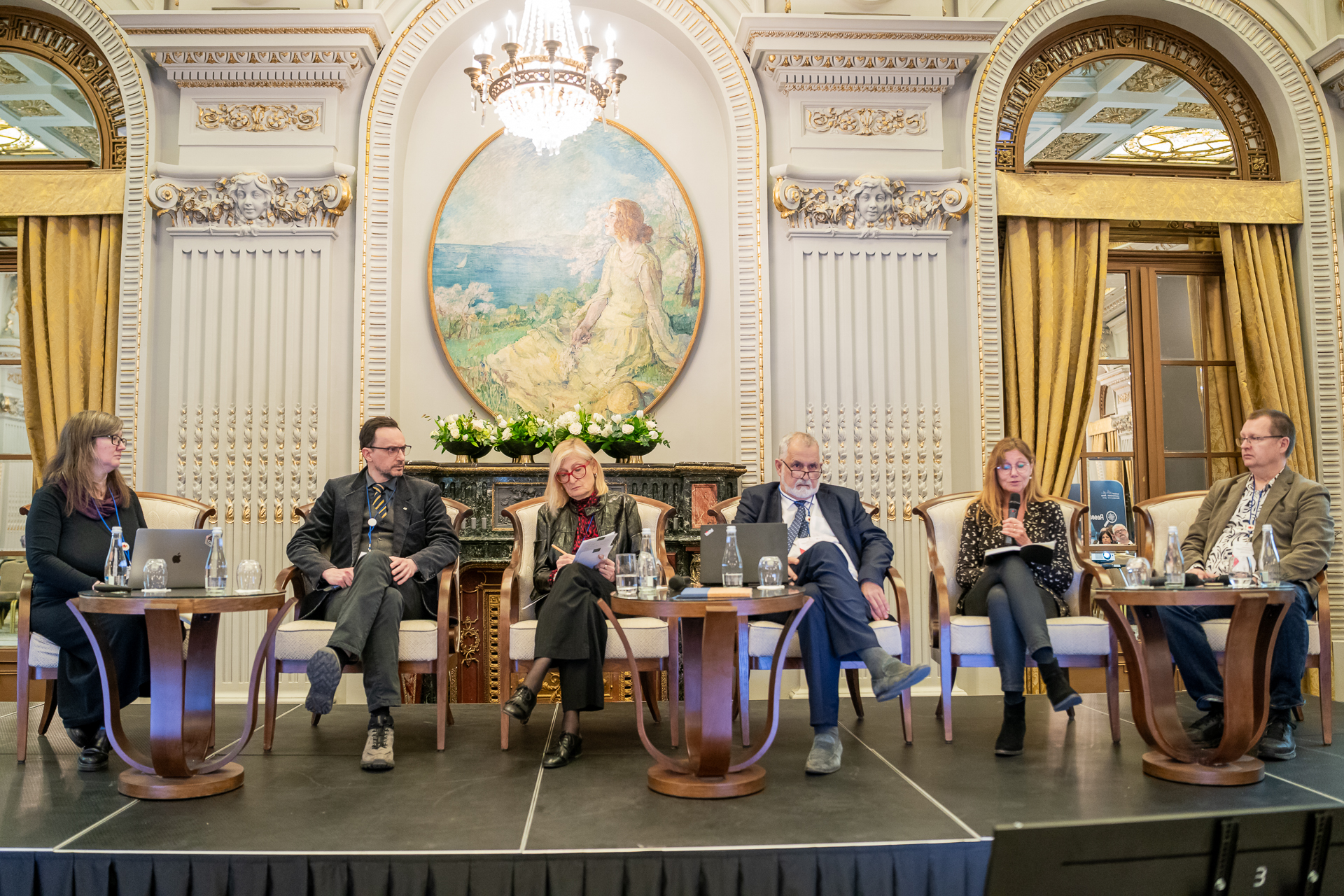Bridging Disciplines: Advancing Research Data Management for Collaborative Innovation took place on March 20-21, 2025, at the InterContinental Athénée Palace Hotel in Bucharest, Romania. As research becomes increasingly data-driven and interdisciplinary, the conference provided a platform for researchers, data managers, and policymakers to explore innovative solutions for improving data management, sharing, and reuse. International experts gathered to discuss key challenges related to metadata, data stewardship, and cross-domain integration, emphasizing the importance of structured, well-documented, and accessible data.
Key Themes and Discussions
The conference covered several topics and themes.
Strengthening the Link Between Research and Policymaking: Participants highlighted the need for clear, structured metadata and accessible data to ensure research findings effectively inform decision-making. Research infrastructures were recognized as essential in bridging the gap between science and policy.
Addressing Challenges in Interdisciplinary Collaboration: Standardized vocabularies and methodologies are crucial for improving data interoperability across disciplines. Panelists stressed the importance of transparency in data collection and analysis and called for greater career incentives for early-career researchers engaged in interdisciplinary work.
Advancing FAIR Data Principles and Ethical Considerations: Ensuring research data is Findable, Accessible, Interoperable, and Reusable (FAIR) was a major focus. Discussions also covered ethical challenges, particularly in managing sensitive data and AI-driven research, emphasizing the need to uphold research integrity.
Overcoming Barriers to Data Sharing and Preservation: Participants addressed technical, institutional, and political challenges, including inconsistent metadata standards, interoperability issues, and the need for long-term digital preservation strategies. Reforming research assessment to incentivize data sharing and interdisciplinary contributions was a key recommendation.
A Call for Continued Dialogue and Collaboration: The event concluded with a call for ongoing engagement between researchers, policymakers, and funding bodies. Strengthening research infrastructures and investing in interdisciplinary frameworks were highlighted as priorities to ensure that science continues to drive societal impact.
More information cab be found on the official event webpage.
FAIR-IMPACT’s Role
FAIR-IMPACT played a role in the event, advocating for best practices in data stewardship and interoperability. Ingrid Dillo, FAIR-IMPACT Coordinator and representative from DANS, contributed to Session 2: EOSC, which explored the European Open Science Cloud’s (EOSC) role in fostering an open and federated research ecosystem. Her panel emphasized the importance of FAIR data principles, ethical considerations in data management, and how EOSC enables seamless data sharing and interoperability across disciplines.

In this Picture: Ingrid Dillo delivering her presentation, second person from the right